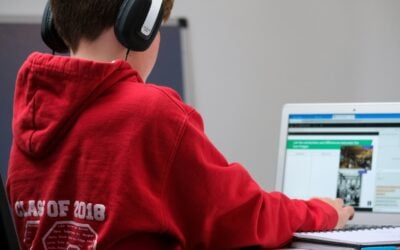The shift towards online education has spotlighted significant challenges that can hinder the learning process, some of these in the realms of digital literacy and technical issues. While online platforms offer the promise of accessible education regardless of geographical constraints, they also bring to light the assumption that familiarity with digital devices translates to digital literacy, a misconception that can impede effective learning.
The Challenge
Digital literacy extends beyond the ability to navigate the internet or use a computer. It encompasses a comprehensive understanding of digital platforms, including the critical evaluation of online resources, understanding digital etiquette, and the ability to use tools to create and communicate effectively. The gap is often overlooked, assuming that younger generations, being online natives, possess innate skills for technology. However, the reality is that many students and even educators struggle with effective digital communication and the critical consumption of online information, posing a challenge to online education’s effectiveness.
Technical issues are another significant barrier. From unreliable internet connections to incompatible software or hardware, technical problems can disrupt the learning process, leading to frustration among students and educators. The assumption of a stable and uniform digital infrastructure across the student body overlooks the varying degrees of access to high-quality digital tools and high-speed internet, further exacerbating educational inequities.
How Online Educators Can Overcome the Challenge
Solutions to these challenges are multifaceted and require a concerted effort from educational institutions, educators, and students. Offering robust technical support is crucial; a dedicated team that can promptly address technical issues can significantly reduce disruptions in the learning process. Moreover, institutions must prioritize digital literacy as a core component of their curriculum. This can include integrating digital literacy training for both students and educators, focusing on navigating digital platforms, understanding digital security, and enhancing online communication skills.
Investing in reliable and accessible online learning platforms is another critical step. Platforms should be user-friendly, compatible with a range of devices, and designed to accommodate learners with different needs, including those with disabilities. Moreover, these platforms should facilitate an engaging learning experience, incorporating interactive elements like tutorials and simulations, forums for discussion, and tools for collaboration – such as using Google Docs to enable group projects – to mimic the dynamism of a physical classroom.
Engagement in online learning environments is crucial for overcoming the challenges of digital literacy and technical issues. By actively involving students in interactive and immersive digital experiences, educators can significantly enhance learning outcomes. Engaged learners are more likely to persist through technical difficulties, motivated by compelling content that resonates with their interests and learning styles. Therefore, fostering an engaging online learning environment is a key strategy for mitigating the impact of technical barriers and promoting digital literacy.
While online education presents a pathway to democratizing access to learning, it also brings to the fore challenges that must be addressed to fully realize its potential. Bridging the digital literacy gap and mitigating technical issues are essential steps towards creating an inclusive and effective online learning environment. As educational institutions navigate this terrain, the focus must remain on creating a supportive, equitable, and engaging educational experience for all students. A Pass Educational Group has the expertise and experience necessary to assist educators and students in navigating these challenges. Through creating engaging content and partnering with institutions as consultants, we can optimize the use of technology in education. If you’re seeking to enhance your digital learning experience, contact us to explore how we can work together.




